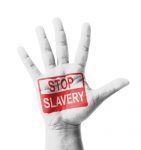US Inmates Hold Mass Strikes Against Unfair Exploitation

Prison inmates across the United States are holding a two-week strike against unfair labour exploitation, overcrowding and unsanitary conditions.
Participants are also calling for the appropriate classification of inmates, highlighting that many non-violent offenders, especially those convicted of drug offences, have been given the highest levels of classification.
Strikes underway
Prisoners in over a dozen states commenced protesting on 21 August – abstaining from work, halting commissary spending, holding sit-in protests and even refusing to eat.
The event is spearheaded by the organisation ‘Jailhouse Lawyers Speak’ (JLS), which comprises a network of imprisoned prisoner rights advocates and is supported by the Incarcerated Workers Organizing Committee (IWOC), a prisoner-led trade group.
Trigger for protest
Prisoner groups have been speaking out for some time about unfair working conditions and subhuman living conditions.
However, the trigger for the strike was a riot that took place in Lee Correctional Institution in South Carolina in April of this year. The incident resulted in the deaths of 7 inmates and injury of more than a dozen. It was reported that guards looked on as the riot escalated, doing nothing to stop it.
JLS explains the incident was fuelled by poor living conditions and prolonged under-staffing. “Seven comrades lost their lives in a senseless uprising that could have been avoided had the prison not been so overcrowded from the greed wrought by mass incarceration and a lack of respect for human life that is embedded in our nation’s penal ideology,” the organisation said in a statement.
Demands
A press release prior to the strike presented a list of the following 10 national demands:
- Immediate improvements to the conditions of prisons and prison policies;
- An immediate end to prison slavery, with compensation equal to the normal wages outside of prisons;
- The Prison Litigation Reform Act to be rescinded, allowing prisoners proper channels to address grievances;
- An end to Death by Incarceration, with the possibility of parole to be available to all prisoners;
- An immediate end to racial overcharging, over-sentencing and parole denials of minority prisoners;
- An immediate end to racist gang enhancement targeting laws;
- A commitment to rehabilitation programs for all prisoners;
- State prisons to be funded specifically to offer more rehabilitation services;
- Pell grants, or college study grants, to be reinstated in all US states and territories; and
- Voting rights of prisoner to be reinstated.
According to prison reform activists planning the strike, retaliatory measures have already begun with many organisers moved into isolation cells.
Modern slavery
There has been a specific focus on ending “modern slavery”, which includes paying prisoners pennies per hour of work while governments and big business reap the benefits.
The Thirteenth Amendment to the United States Constitution prohibits slavery for everyone except prison inmates, stating:
“Neither slavery nor involuntary servitude, except as a punishment for crime whereof the party shall have been duly convicted, shall exist within the United States.”
The exception makes it extremely profitable for inmates to be used as cheap labour for years on end.
Nearly 2.3 million people are imprisoned across the United States, according to the Prison Policy Initiative (PPI).
According to the organisation’s April 2017 report, inmates who work in state-owned industries earn an average of between $0.33 and $1.41 an hour, while those in in regular prison jobs earn between $0.14 and $0.63 an hour.
Corporate lobbying in the United States led Congress to enact the Prison Industry Enhancement Certification Program in 1979, which enabling companies to use prison labour.
Big profits
The dramatic ensuing increase in the prison population led to a sharp rise in corporate profits. The Federal Bureau of Prisons now runs a programme called Federal Prison Industries (UNICOR), which pays inmates less one dollar per hour. That programme alone generated $500m in sales in 2016.
The states have also implemented extremely profitable labour programs. California’s prison labour programme, for example, generated $232m in sales in 2017.
UNICOR manages 83 factories and more than 12,000 prison labourers who earn a pittance cleaning, cooking, working at call centres, manufacturing military body armour and other-industry uniforms.
Prison labour issues recently received attention when inmates were recruited in California to fight wildfires, putting their lives on the line for just $1 an hour plus $2 per day.
War on drugs
The ineffective war on drugs has played a significant role in building the prison industrial complex.
The United States has grown to be the world’s leading incarcerator, experiencing a 500% increase in inmate numbers over past forty years – a period which coincides with the drug war.
President Donald Trump and hardline Attorney General Jeff Sessions want the trend to continue, expressing a hardline stance on drug offences.
Mr Trump has consistently supported tougher law enforcement strategies as a whole. For example, during his nominating speech at the RNC in July, the president slammed “this administration’s rollback of criminal enforcement”.
He supports a wide range of authoritarian measures including police ‘stop and frisk’ powers, zero-tolerance policies, mandatory sentencing, lengthier prison sentences and private prisons.
Given those views, many are pessimistic regarding a rollback of inmates exploitation.






